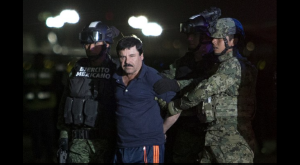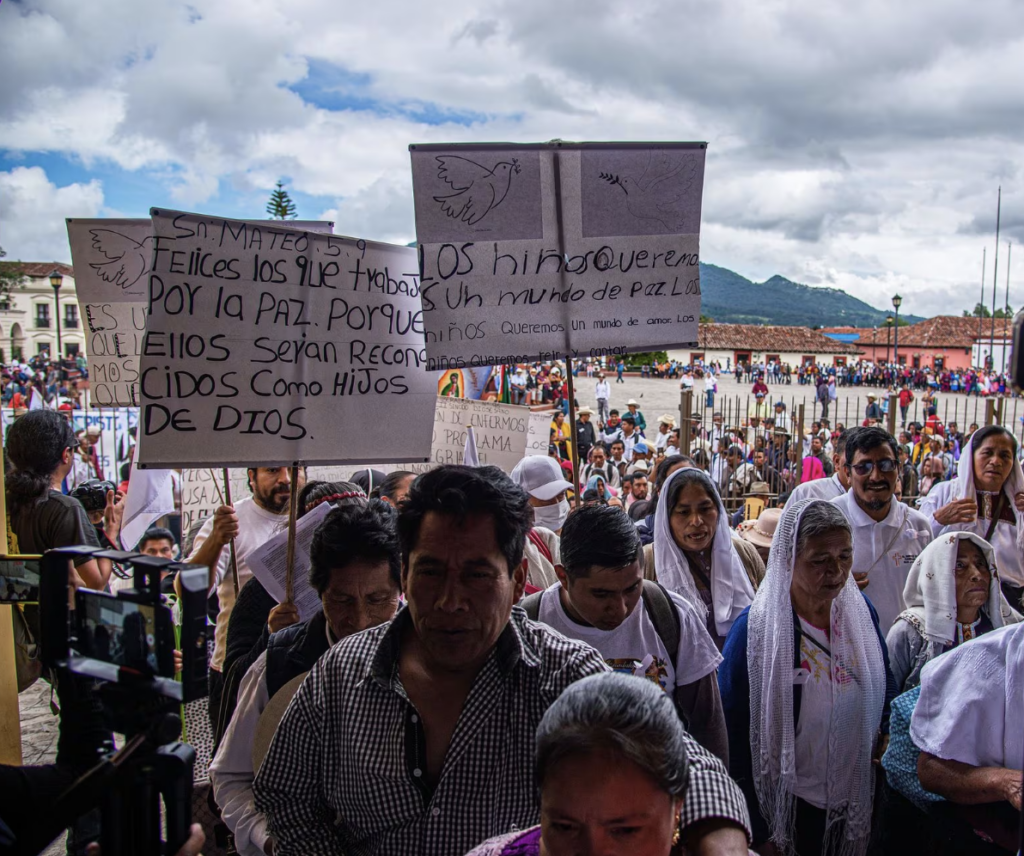
01/23/16 (written by kheinle) — Just two weeks after the January 8th arrest of the world’s most wanted drug lord, Joaquín “El Chapo” Guzmán, in the Mexican state of Sinaloa, much has been speculated about how his case will unfold. This is the third time El Chapo, head of the powerful Sinaloa Cartel, has been captured, having twice before broken out of prison in Mexico, once in 2001 and again in 2015. After the most recent arrest, El Chapo returned to the maximum-security prison, Altiplano, from where he escaped in 2015 via an underground tunnel below his cell that stretched nearly a mile long leading away from prison grounds.
When news broke of El Chapo’s arrest in 2016, many took to social media, reacting with questions of how long until he would escape again and how long until another mishandling of a high profile case would embarrass the Peña Nieto administration. Although Mexican authorities reiterated Guzmán is securely detained, many have demanded on both sides of the U.S.-Mexican border that El Chapo be extradited to the United States, not only because he faces charges in seven U.S. jurisdictions for organized crime, murder, and drug trafficking, but also to ensure the Mexican judiciary system does not permit another escape. Mexico’s justice system is perceived as being notoriously corrupt, a label it is working to overturn through its implementation of the New Criminal Justice System (Nuevo Sistema de Justicia Penal, NSJP). While that system continues to be rolled out, however, critics are quick to note the government’s inability to securely hold El Chapo not once, but twice. For her part, Political Analyst Denise Dresser called for El Chapo’s immediate extradition to the United States “before his legal battle ensnares that possibility… Catching [El Chapo] again,” Dresser continued, “doesn’t mean recognizing or remedying or reforming. So many systems failed during the second escape that it’s too big to be circumstantial. The coincidence is too coincidental. That’s why he should be taken out of a prison, security, information, and criminal investigation systems that has repeatedly shown its weaknesses, even if the President and his team deny it.”
Although the Mexican Attorney General’s Office (Procuraduría General de la República, PGR) did begin the extradition process on January 9, a day after El Chapo’s arrest, that could take anywhere from six months to a year or more. There is also the real possibility that extradition never happens if El Chapo’s legal team, led by Mexican Attorney Juan Pablo Badillo, succeeds in filing motions and injunctions (amparos) to suspend the requests for extradition. Doing so means El Chapo’s case must first be heard before a judge to determine his eligibility for extradition, a process that could be expedited if the Peña Nieto administration intervened, reports El País. However, opponents of Dresser’s calls for immediate extradition argue that doing so would reflect poorly on the Mexican government and its ability to function effectively. “It would be an error to extradite him now,” commented Eduardo Guerrero, a national security analyst and former intelligence analyst for President Felipe Calderón (2006-2012). “It would show that Mexico is very vulnerable.” Nevertheless, Guerrero said, the PGR needs to tread carefully in El Chapo’s case to ensure there are no legal missteps.
While the legal battle continues, the three key U.S. jurisdictions pursuing his extradition—San Diego, Chicago, and New York City—continue to vie for position to have his case heard. According to a former high-ranking official in the U.S. Drug Enforcement Agency (DEA), Carl Pike, the case will likely go to the jurisdiction with “the highest chance of success.”
Sources:
“Joaquín ‘El Chapo’ Guzmán Loera Recaptured by Mexican Marines.” Justice in Mexico. January 8, 2016.
Dresser, Denise. “El Chapo(teadero).” Reforma. January 11, 2016.
“Mexico starts proceedings to extradite Guzman to US.” The Associated Press. January 11, 2016.




